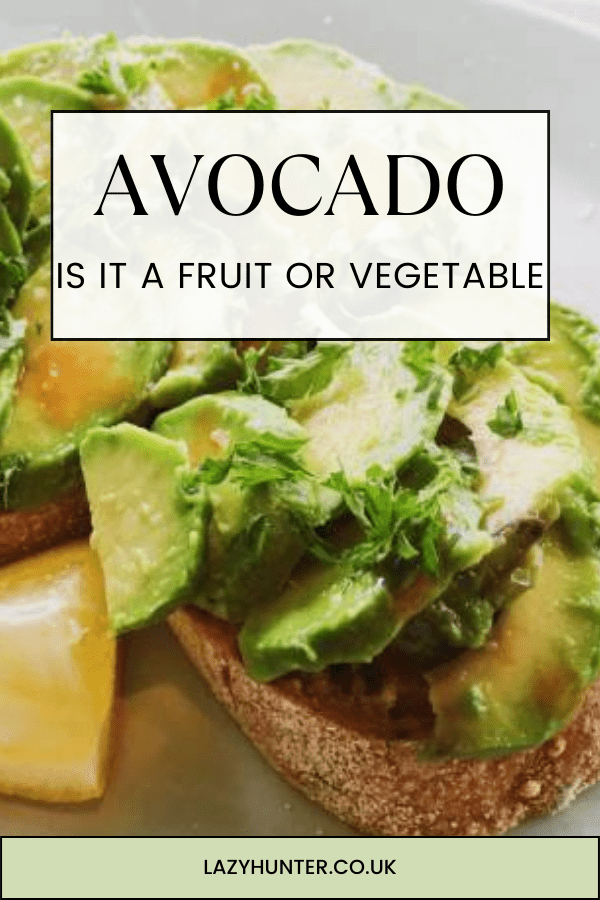Avocado, the creamy and delicious fruit that is a staple in many households, has been gaining popularity in recent years. It’s often referred to as a superfood due to its high nutritional value, but what is it exactly?
Is it a fruit or a vegetable? This question has been debated for years, but one thing is certain – it’s packed with a range of health benefits that make it worth adding to your diet. From healthy fats to vitamins and minerals, avocados offer a variety of benefits that can improve your overall well-being.
We will explore the nutritional benefits of avocados and settle the age-old debate of whether it’s a fruit or vegetable. So, get ready to learn all about this versatile and nutritious food that is loved by millions around the world.
Avocado: Fruit or vegetable?
The avocado is a fruit that is often mistaken for a vegetable. It belongs to the flowering plant family Lauraceae, which also includes cinnamon and bay leaves. The avocado tree is native to Mexico and Central America, and its fruit has been cultivated for thousands of years.
The confusion about whether it’s a fruit or vegetable comes from the fact that it’s not a sweet fruit like most other fruits. Instead, it has a mild, nutty flavour that makes it a popular ingredient in savoury dishes. However, it still meets the botanical definition of a fruit, which is the mature ovary of a flowering plant.
So, while it’s technically a fruit, it’s often used in culinary applications as a vegetable. Regardless of whether it’s a fruit or vegetable, the important thing to know is that it’s a highly nutritious food that can provide a range of health benefits.
Nutritional profile of avocado
One of the reasons why avocados are considered a superfood is their impressive nutritional profile. One medium avocado contains approximately:
– 250 calories
– 20 grams of healthy fats
– 12 grams of carbohydrates
– 10 grams of fibre
– 3 grams of protein
– Vitamin K: 26% of the RDA
– Vitamin C: 17% of the RDA
– Potassium: 14% of the RDA
– Vitamin B5: 14% of the RDA
– Vitamin B6: 13% of the RDA
In addition to these vitamins and minerals, avocados are also rich in antioxidants, including lutein and zeaxanthin, which can protect against eye diseases.
The high-fat content of avocados is often a cause for concern for some people, but it’s important to note that the majority of the fat in avocados is heart-healthy monounsaturated fat. This type of fat can help reduce inflammation and lower the risk of heart disease.
Related
Health benefits of avocado
Now that we’ve established that avocados are a highly nutritious food, let’s take a closer look at some of the health benefits they offer.
Avocado and heart health
As mentioned earlier, avocados are rich in monounsaturated fat, which is beneficial for heart health. Studies have shown that eating avocados can help lower LDL (bad) cholesterol levels and improve overall cardiovascular health.
In addition to their fat content, avocados are also a good source of potassium, which is important for maintaining healthy blood pressure levels. High blood pressure is a major risk factor for heart disease, so consuming potassium-rich foods like avocados can be beneficial.
Avocado and weight management
Despite their high-calorie content, studies have shown that adding avocados to meals can actually help with weight management. The high fibre and healthy fat content of avocados can help increase feelings of fullness and reduce hunger, which can ultimately lead to consuming fewer calories overall.
Avocado and skin health
The vitamins and antioxidants in avocados can also benefit the skin. Vitamin C is important for collagen production, which can help keep skin firm and smooth. Additionally, the high-fat content of avocados can help improve skin hydration and elasticity.
Avocado and digestion
The high fibre content of avocados can also help improve digestion and promote regularity. Fibre is important for maintaining a healthy gut microbiome and reducing the risk of digestive issues like constipation.
Avocado recipes for a healthy diet
Now that we’ve covered the nutritional benefits of avocados, let’s talk about how to incorporate them into your diet. Here are a few healthy and delicious avocado recipes to try:
Avocado toast
Avocado toast has become a popular breakfast and snack option in recent years and for good reason. It’s simple to make and can be customized to your liking. To make avocado toast, simply toast a slice of whole-grain bread, mash half an avocado, and spread it on the toast. You can top it with your favourite seasonings, such as salt, pepper, and red pepper flakes.
Avocado smoothie
For a refreshing and nutritious breakfast or snack, try making an avocado smoothie. Blend together one ripe avocado, 1 cup of almond milk, 1 banana, and a handful of spinach for a delicious and creamy smoothie.
Avocado salad
For a healthy and filling lunch or dinner option, try making an avocado salad. Combine mixed greens with sliced avocado, cherry tomatoes, cucumber, and grilled chicken for a satisfying meal.
Conclusion
In conclusion, avocados are a highly nutritious food that can provide a range of health benefits. Despite the debate over whether they’re a fruit or vegetable, the important thing to know is that they’re packed with healthy fats, fibre, vitamins, and minerals.
Whether you enjoy them on toast, in a smoothie, or in a salad, there are plenty of delicious ways to incorporate avocados into your diet.


